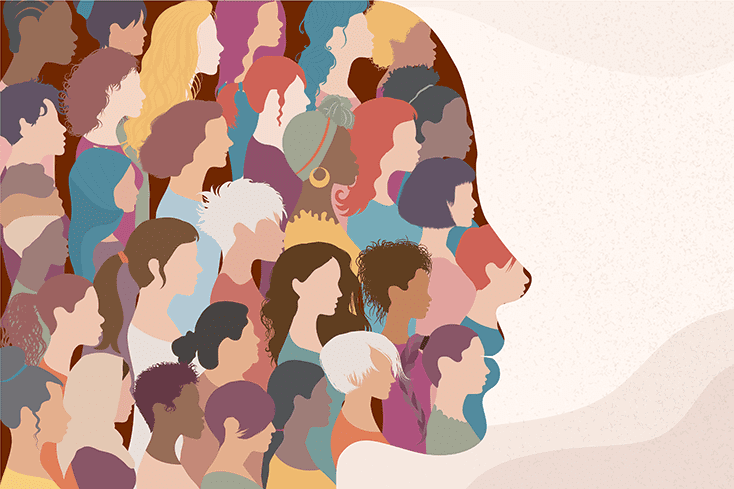June 28, 2023
By Meggin Rose

Despite social progress and political movements to dismantle the pervasive gender bias in our culture, misogyny has had — and continues to have — a significant impact on the diagnosis and treatment of mental illness.The mental health system, like many institutions, was built by men in a time when women were considered the “weaker sex” — physically, intellectually and emotionally.
Historically, women were often dismissed or disregarded by their health care providers — they were deemed “hysterical,” and any symptoms of anxiety and depression were attributed not to the oppression or lack of agency in their own lives, but to their fragility, incapacity and “wandering wombs.”Some of the first psychotherapists also claimed that mental illness in a child was a direct result of how they were mothered — essentially blaming women for “causing” mental illness.
Currently, if you identify as a woman, chances are you have had one or more occasions of feeling dismissed, disregarded or even objectified by a health care provider.Perhaps you were even taught that being polite and compliant was more important than having your health needs met. If you are a mother, you may feel a sense of guilt if your child is struggling and may even blame yourself.Was I too lenient? Did my anxiety cause their mental illness? Should I have quit my job and stayed home with the kids? Was it all my fault?
To continue changing this harmful narrative, we must turn to advocacy. There are steps we can take in our own lives to demand and model better treatment for ourselves and for our families when it comes to mental health care.
Advocacy often begins on the individual level. More recently, people who identify as women are learning to speak up about what we want and need when we work with any health care providers. As we learn more about the mind-body connection, we can voice our concerns and reject the notion that symptoms are “all in our head.” We can get a second opinion rather than settling for a “fallback” diagnosis when we feel something is not right with us.
We can also use the widely available health information from reliable online sources to ask more informed questions. This has encouraged me to better monitor my tests results and helped me to better advocate for myself. For example, I have flagged irregular bloodwork results to my providers on several occasions, which altered my treatment plan and improved my health.
We must remember that we are the consumers of our care — we are the reason why providers are giving care. Recognizing this, we can come to appointments with a prepared personal health agenda, ask questions, demand to be heard and expect to be believed and respected. If our doctors cannot accommodate this, we must seek new ones.
As women continue to take on the role as the primary caregiver of children, we should be heard and believed when we describe our child’s symptoms to a pediatrician. Parent-caregivers are the experts on their young children.We should be partners with providers on our child’s treatment plan, medication adherence and follow-up care.
This provides an opportunity for us to be powerful advocates by:
When my loved-one became ill, I had to learn how to be a mental health advocate. Between fighting with health insurance over payment for a covered medication, to researching treatments and developing a working relationship with the little mental health care we could engage, it was almost a full-time job.
We may be emotional, and that is fine; it is not weak or hysterical — it is a healthy response to a terrible situation in which we have very little control over the life and health of our loved one.
I have barely scratched the surface on the issue of gender bias and patriarchy in mental health care. I haven’t talked about our amazing allies who identify as male.I haven’t talked about the outstanding providers I have had the privilege to work with.I also haven’t dealt with the devastating gap in mental health care because of racism, classism and level of academic achievement.But I am focused on raising the issue for further debate and research, and for helping to name one of the obstacles we, as women, run into as advocates for our loved ones in a world plagued by patriarchy and inequity.
Meggin Rose, a former teacher, is a Family Peer Advocate, board member of her local NAMI Affiliate and works with NYU on a research study tracking the impact of family peer advocacy on patient and family systems outcomes.She is committed to teaching fierce advocacy skills to the caregivers of people with serious mental illness.
We’re always accepting submissions to the NAMI Blog! We feature the latest research, stories of recovery, ways to end stigma and strategies for living well with mental illness. Most importantly: We feature your voices.
LEARN MORENAMI HelpLine is available M-F, 10 a.m. – 10 p.m. ET. Call 800-950-6264,
text “helpline” to 62640, or chat online. In a crisis, call or text 988 (24/7).